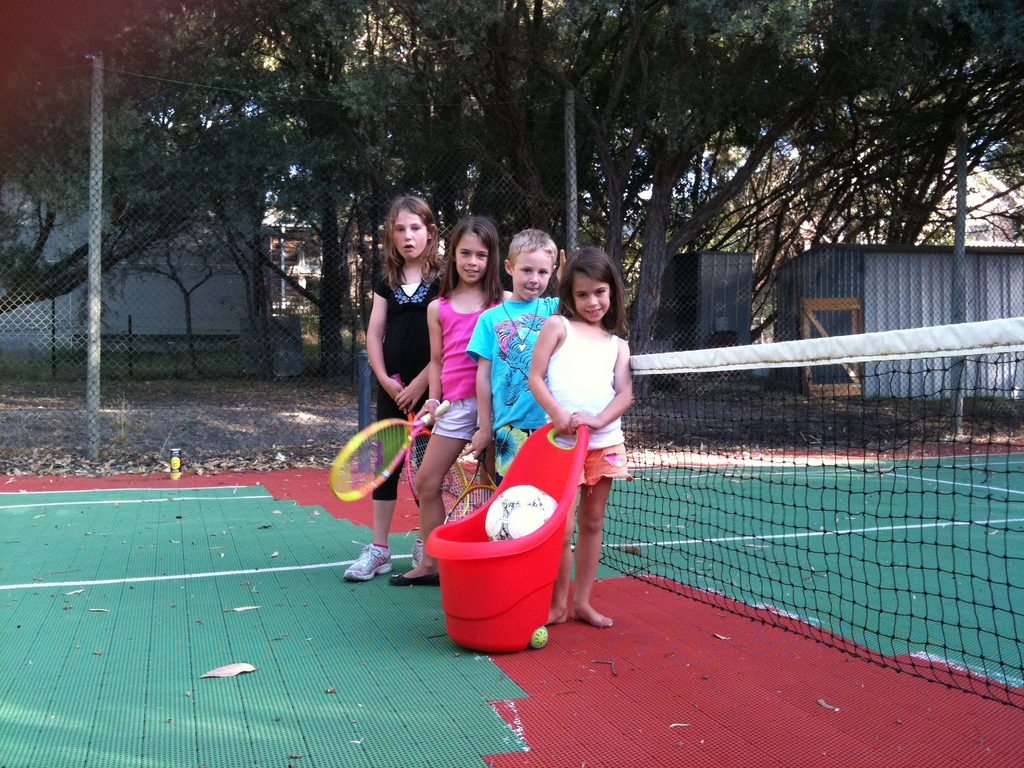How Tennis Can Benefit Your Kids

Photo by CC user jonnybrownbill on Flickr
When the school break comes along, like many parents you may be scrambling to find something for your kids do over the summer. Chances are that you have considered tennis lessons or camp as a way to keep them busy – tennis advocates like Chase Rubin would agree that this is a great option, because gaining skills in the sport of tennis can provide many benefits to your children in addition to giving them something to do over the break.
Cardiovascular and Muscle Strength
There are many physical benefits that come from playing tennis over other sports. Tennis is a quick sport that requires almost constant motion – unlike baseball or even soccer, there is very little downtime spent waiting for your turn at bat or for the ball to come to your area of the field. This contributes to the overall physical health of children, and helps to instill a love of sport that will stay with them throughout life. Quick stops and starts contribute to the development of fast-twitch muscle fibers and also to bone density. The benefits of playing tennis will thus spill over into other forms of activity that your child enjoys, supporting success across multiple sports.
Coordination and Flexibility
Like most other sports, tennis encourages the development of eye-hand coordination skills. Fine motor skills are developed through the precision that is required to place the ball where your child wants it to go, to introduce spin and to calculate angles. Gross motor skills are enhanced every time your child swings the racquet to hit the ball, or moves to position their body quickly and accurately. Flexibility is also developed as returning the ball will often require stretching arms, legs and the torso to reach the ball.
Sportsmanship and Discipline
Although the act of swinging a racquet to hit a ball is not difficult in and of itself, practice is required to become adept, and lots of practice is necessary if your child wants to play anything more than a social game. Like any sport, this requires discipline and dedication. Additionally, whether your child is playing alone or with a partner, their performance is front and center. There is no way to avoid personal responsibility for a missed return or a poor serve, and so young players must learn to be gracious in defeat. Because this is a one-on-one or two-on-two sport, players connect with their opponents in a more direct way, and are also encouraged to be gracious in victory. Additionally, because there is often no umpire in junior tennis, the players themselves must learn to keep score and make difficult calls which encourages the development of honesty and accountability. The nature of tennis thus requires and develops good sportsmanship.
These are just some of the ways in which children can benefit from playing tennis. Tennis is a very popular sport and learning to play will have social and physical benefits that will last a lifetime. It is never too soon to expose your children to the “sport of kings”!


